Table tennis, a sport loved by millions around the world, is not only exciting to watch but also a fantastic way to stay active and improve hand-eye coordination. If you’re wondering whether there is an ideal age to start playing this fast-paced game, the answer may surprise you. In this article, we will explore the factors that can influence the best age to start playing table tennis, so read on to discover if it’s ever too early or too late to pick up a paddle and join the fun!
This image is property of www.thepadelemporium.com.
Review contents
Physical Development and Coordination
Benefits of starting at a young age
Starting table tennis at a young age offers numerous benefits in terms of physical development and coordination. Young children have a greater capacity for acquiring new physical skills, and their bodies are more adaptable to the demands of the sport. By starting early, children have the opportunity to develop their hand-eye coordination, agility, and motor skills, which are essential for executing precise shots and quick movements on the table. As children grow and progress in their training, these physical attributes become more refined and ingrained, laying a solid foundation for future success in table tennis.
Importance of motor skills development
Motor skills play a crucial role in table tennis as they involve the precise coordination of muscle movements to perform specific actions. Whether it’s the quick wrist flick during a topspin shot or the agility needed to move swiftly around the table, motor skills are fundamental to competitive play. Starting at a young age allows children to enhance their fine motor skills, such as finger dexterity and wrist control, which are essential for executing delicate shots. Additionally, developing gross motor skills like balance, agility, and footwork allows players to move effectively and efficiently across the table, maximizing their performance potential.
Factors affecting physical development
While starting early has its advantages, it is important to consider the individual physical development of each child. Factors such as growth rate, body coordination, and flexibility differ among children, and these variances can influence their ability to learn and perform in table tennis. Additionally, genetic factors, training intensity, and overall physical health can also impact a child’s physical development. It is essential to understand and respect each child’s unique physical capabilities and nurture their growth accordingly, ensuring a safe and enjoyable table tennis journey.
Cognitive Development and Learning
Advantages of starting early for cognitive development
Starting table tennis at a young age not only contributes to physical development but also fosters cognitive growth. Cognitive skills encompass memory, attention, problem-solving, decision-making, and strategic thinking, all of which are highly beneficial for table tennis players. Beginning early allows children to start developing these cognitive skills through the various aspects of the game, such as anticipating opponents’ shots, analyzing game situations, and making split-second decisions. As they progress in their training, these cognitive abilities become more advanced, enhancing their overall gameplay and decision-making skills.
Ability to learn new techniques and strategies
Children are known for their incredible ability to learn quickly and adapt to new information. Starting early enables them to grasp the fundamental techniques and strategies of table tennis more easily. With consistent and structured practice, young players can develop a strong foundation of skills, including proper grip, stance, and stroke techniques. This early mastery of basic techniques provides a solid framework for advanced shot-making and strategy development in the future. As they grow and gain experience, their cognitive abilities continue to expand, allowing them to absorb more advanced techniques and strategies.
Attention span and focus
Another crucial aspect of cognitive development is attention span and focus, which are essential for sustained concentration during intense table tennis matches. Starting at a young age helps children develop the habit of maintaining focus for extended periods, enhancing their ability to stay engaged and make accurate decisions under pressure. Table tennis requires split-second reactions and rapid decision-making, and a strong attention span allows players to react quickly to the game’s demands, giving them a competitive edge. The early cultivation of focus and attention span enables young players to persevere through challenging situations, setting them up for success in both table tennis and other aspects of life.
Social Interaction and Sportsmanship
Teamwork and sportsmanship skills
Table tennis, often played as both an individual and team sport, provides ample opportunities for social interaction and the development of important teamwork and sportsmanship skills. Starting at a young age allows children to learn how to work together with teammates, communicate effectively, and respect each other’s contributions. In team competitions, players must coordinate their efforts, strategize collectively, and support one another both on and off the table. Beyond the technical aspects, table tennis also teaches important values like fair play, respect, and integrity, fostering a positive and sportsmanlike environment for all participants.
Social benefits of starting at a young age
Starting table tennis at a young age exposes children to a diverse range of individuals, promoting social interaction and the formation of lasting friendships. The table tennis community is known for its inclusiveness and camaraderie, allowing players to connect with peers who share a common passion for the sport. Regular participation in training sessions, tournaments, and club activities offers countless opportunities to meet new people and build relationships based on shared interests. This early socialization not only enriches the overall table tennis experience but also enhances players’ social skills and broadens their horizons.
Building friendships and connections
Table tennis serves as a platform for building strong friendships and connections that can last a lifetime. Starting at a young age allows children to form friendships with fellow players who are on a similar developmental journey. These friendships provide support, encouragement, and healthy competition, fostering a positive learning environment. As players progress through various tournaments and training programs together, they share experiences and create bonds that extend far beyond the table. Such friendships offer emotional support, motivation, and a sense of belonging, making the journey in table tennis all the more fulfilling.
Future Competitiveness and Opportunities
Advantages of early training for competitive play
Starting table tennis at a young age provides players with a competitive advantage both in terms of skill development and experience. Engaging in focused training from an early age allows young players to accumulate the necessary technical and tactical skills required for success in competitive play. By dedicating time and effort to their training, young players can build a strong foundation and achieve a higher level of proficiency, giving them a head start in tournaments and competitions. This early start also offers the opportunity to gain experience by participating in various matches, improving their ability to perform under pressure.
Opportunities for scholarships and professional development
For individuals aspiring to pursue table tennis at higher levels, starting at a young age opens doors to numerous opportunities for scholarships and professional development. Many colleges and universities offer athletic scholarships for talented table tennis players who demonstrate exceptional skill and potential. By establishing a strong foundation in their early years, young players can showcase their abilities to scouts and coaches, increasing their chances of receiving scholarships and continuing their education while competing in table tennis. Additionally, starting early allows players to gain exposure and recognition in the table tennis community, paving the way for potential sponsorships and professional career prospects.
Impact on long-term success
Long-term success in table tennis often depends on the years of dedicated practice and development. Starting at a young age allows players to lay the groundwork for their future success, providing them with ample time to learn and master the intricacies of the sport. With perseverance and a commitment to continuous improvement, young players can refine their skills, develop their own playing style, and forge a competitive edge. Furthermore, early involvement in table tennis cultivates a passion for the sport and a love for the process of learning and self-improvement, which are integral to sustained success in both table tennis and life beyond the sport.
This image is property of i.ytimg.com.
Physical Limitations and Injury Risks
Considerations for older beginners
While starting at a young age offers certain advantages, individuals who begin table tennis at an older age may face physical limitations and challenges. As the body matures, it may take longer to adapt to the physical demands of the sport. Older beginners may need to gradually build strength, flexibility, and coordination to perform optimally. It is important for older beginners to be realistic about their physical limitations and set achievable goals, focusing on personal improvement rather than comparing themselves to younger players. With proper guidance, effort, and determination, older beginners can still enjoy the physical and mental benefits of table tennis.
Potential for overuse injuries
Like any sport, table tennis carries the risk of overuse injuries, especially when players engage in repetitive movements without adequate rest and recovery. Players of all ages must be mindful of their training intensity, gradually increasing the duration and intensity of their practice sessions to avoid overuse injuries. Starting at a young age allows players to gradually build their training load, ensuring their bodies adapt to the physical demands over time. Additionally, proper warm-up exercises, stretching routines, and regular rest days help prevent injuries and optimize physical performance in table tennis.
Adjusting playing style based on physical abilities
Each individual possesses unique physical abilities and limitations. While it is important for players to strive for optimal technique and execution, they must also adapt their playing style to align with their physical capabilities. For instance, players with limited mobility may focus on developing their defensive skills and relying on positioning and strategy rather than relying solely on speed and power. Understanding one’s physical strengths and weaknesses allows players to tailor their training and playing style accordingly, maximizing their potential and minimizing the risk of injury.
Interest and Motivation
Passion for the sport at different ages
Table tennis is a sport that can be enjoyed by individuals of all ages, and the passion for the sport can manifest at different stages of life. Some individuals discover their love for table tennis at a young age, while others develop an interest later in life. Starting at a young age provides the advantage of more time for skill development and mastery. However, it is important to note that passion and interest are not solely age-dependent but rather driven by personal inclination and experiences. Regardless of when one begins the journey in table tennis, passion and motivation are the driving forces that fuel dedication, improvement, and enjoyment of the sport.
Influence of role models and peer groups
Role models and peer groups play a significant role in shaping an individual’s interest and motivation in table tennis. Starting at a young age exposes children to a world of talented players, inspiring them to follow in their footsteps. Having idols to look up to not only instills a sense of admiration but also drives individuals to strive for excellence. Peer groups create a sense of camaraderie and friendly competition, encouraging individuals to push themselves further and develop alongside their peers. Whether it is a role model’s exceptional skills or the support and encouragement of peers, these influences contribute to the sustained interest and motivation in table tennis.
Balancing enjoyment and commitment
Maintaining a balance between enjoyment and commitment is crucial for long-term engagement in table tennis. While passion and dedication are essential for improvement, it is equally important to find joy in the process and derive satisfaction from playing the sport. Starting at a young age allows individuals to discover their passion early on and develop a deep love for the sport. However, regardless of when one starts, it is important to continually assess personal priorities, set realistic goals, and ensure that the level of commitment aligns with individual circumstances and overall lifestyle. Balancing the enjoyment of table tennis with other commitments and responsibilities contributes to a well-rounded and sustainable journey in the sport.
This image is property of www.experttabletennis.com.
Access to Training and Coaching
Availability of quality coaching at different ages
Access to quality coaching is crucial for the development of table tennis players at any age. Starting at a young age provides the opportunity to receive guidance from experienced coaches who specialize in nurturing young talents. Skilled coaches can provide age-appropriate training techniques, tailored to the physical and cognitive abilities of young players. These coaches can lay a strong technical foundation and mentor players through the various stages of their development. Furthermore, access to quality coaching ensures that young players receive proper instruction, feedback, and support, facilitating their growth and progress in table tennis.
Importance of proper technique and guidance
Developing proper technique is essential in table tennis to maximize performance, prevent injuries, and ensure long-term progress. Starting at a young age allows players to learn and master correct strokes, footwork, and playing techniques from the very beginning. With proper guidance and instruction, young players can avoid faulty habits and incorrect form, establishing a solid technical foundation. Good technique not only contributes to efficient and effective strokes but also enhances players’ ability to adapt and learn new techniques as they advance in the sport. Receiving guidance from experienced coaches is instrumental in acquiring and refining these technical skills.
Availability of training facilities
Starting table tennis at a young age often coincides with having greater access to training facilities. Cities and communities usually host dedicated table tennis clubs, which provide ideal training environments with suitable equipment, practice tables, and playing spaces. These facilities give young players the opportunity to train regularly, engage in practice matches, and participate in club activities. The availability of training facilities allows young players to immerse themselves in the sport, practice under optimal conditions, and connect with fellow players and coaches. Such access to training facilities enhances the overall table tennis experience and contributes to a player’s long-term development.
Family Support and Commitment
Parental involvement in the journey
Parents play a crucial role in supporting their children’s table tennis journey, regardless of the starting age. Starting at a young age often requires parental involvement in terms of transportation, enrollment in coaching programs, and the allocation of time and resources for practice and competitions. Parental support extends beyond logistical aspects and includes emotional support, encouragement, and being a positive role model for dedication and sportsmanship. Parents who actively engage in their child’s table tennis journey create a nurturing and supportive environment that fosters the child’s passion for the sport and overall development.
Commitment to regular practice and training
Consistency and commitment to regular practice and training are key components of success in table tennis. Irrespective of the starting age, maintaining a disciplined practice routine is crucial for improvement. Parents play a vital role in encouraging their children to establish a practice schedule and adhere to it. Consistent training allows players to develop and refine skills, build muscle memory, and reinforce good habits. Furthermore, parents can actively engage in training sessions, providing additional support, feedback, and motivation. The commitment to regular practice, with the support of family, cultivates discipline, determination, and a strong work ethic that transcends table tennis and can be applied to other aspects of life.
Balancing academics and table tennis
Starting table tennis at a young age requires balancing academic commitments with training and competition schedules. It is crucial for parents and players to strike a balance between academic pursuits and table tennis training, ensuring that neither aspect is neglected. Effective time management, open communication with teachers and coaches, and prioritization of tasks allow young players to excel in both academics and table tennis. Additionally, participating in table tennis can enhance certain skills, such as focus, discipline, and teamwork, which can positively impact academic performance. By fostering a supportive and understanding environment, parents can help young players juggle their academic responsibilities and table tennis aspirations effectively.
This image is property of www.newgy.com.
Long-Term Development and Sustainability
Building a strong foundation at a young age
Starting table tennis at a young age allows players to build a strong foundation that supports their long-term development. By immersing themselves in the sport from an early age, players can acquire and refine fundamental skills, techniques, and strategies that form the basis for more advanced play. Investing time and effort in building a strong foundation ensures that players have a solid platform upon which to develop their unique playing style and continue progressing through various skill levels. The early focus on fundamental development sets the stage for sustained improvement and success in table tennis.
Progression through different skill levels
Table tennis offers a structured progression through different skill levels, starting from beginner levels and culminating in advanced competitive play. Starting at a young age enables players to progress through these skill levels more seamlessly, as they have more time to dedicate to each stage of development. Starting early allows players to master the basics, hone advanced techniques, and compete at increasingly challenging levels as their skills and confidence grow. The gradual progression through skill levels not only provides a sense of accomplishment but also keeps players motivated and engaged in their continuous development as table tennis players.
Maintaining interest and continuous improvement
Sustaining interest and continuous improvement are essential aspects of long-term development in table tennis. Starting at a young age allows for years of engagement in the sport, fostering a deep-rooted passion that can endure throughout a player’s lifetime. However, to maintain interest and motivation, it is crucial to continually challenge oneself and seek new opportunities for improvement. This can be achieved through participation in local and national competitions, training with more experienced players, and setting ambitious goals. By fostering a growth mindset and constantly striving for improvement, players can ensure that their table tennis journey remains fulfilling, exciting, and sustainable.
Personal Goals and Aspirations
Individual objectives as a player
Starting table tennis at any age should involve the identification and pursuit of personal goals and aspirations. Individual objectives may vary based on personal preferences, talent, and commitment level. Some players may aim to reach the highest competitive levels, while others may be content with participating in local tournaments and enjoying recreational play. Starting at a young age allows players to explore their strengths, preferences, and long-term aspirations. Setting personal goals, whether they involve skill development, tournament success, or personal satisfaction, keeps players driven, focused, and motivated throughout their table tennis journey.
Alignment with personal values and priorities
Table tennis, like any other pursuit, should align with personal values and priorities. Starting at a young age provides the opportunity to integrate table tennis into one’s lifestyle and ensure it complements other important aspects of life. Personal values such as discipline, perseverance, and self-improvement can be cultivated and reinforced through the pursuit of table tennis goals. Priorities, such as education, family, and other personal commitments, should be considered when setting goals and managing training and competition schedules. By aligning table tennis with personal values and priorities, the sport becomes an enriching and meaningful part of one’s overall life journey.
Setting realistic expectations
Setting realistic expectations is crucial for maintaining a healthy mindset and enjoyment in table tennis, regardless of the starting age. While starting at a young age offers certain advantages, it is important to acknowledge personal limitations, progress at one’s own pace, and focus on personal growth rather than comparing oneself to others. Setting ambitious yet achievable goals ensures a sense of accomplishment while embracing the challenges and setbacks that are part of the table tennis journey. By setting realistic expectations, players can maintain a positive mindset, celebrate their progress, and find joy in the continuous improvement that table tennis offers.
In conclusion, starting table tennis at a young age offers numerous benefits and opportunities for physical development, cognitive growth, social interaction, and long-term success in the sport. Early involvement provides a solid foundation for skill acquisition, coordination, and cognitive abilities, giving young players a head start in their table tennis journey. It also fosters social interaction, teamwork, and the formation of lasting friendships. Starting early opens doors to future competitiveness, scholarships, and professional development. However, it is important to consider individual physical limitations, potential injury risks, and the need to adapt playing style based on one’s physical abilities. Passion, interest, and motivation are crucial factors that transcend age, with the influence of role models and peer groups playing a significant role. Access to quality training facilities, family support, and commitment are essential for sustained development. Striking a balance between enjoyment and commitment, academics and table tennis, is key to fostering a well-rounded experience. Long-term development and continuous improvement are achieved by building a strong foundation, progressing through various skill levels, and maintaining interest. Finally, setting individual goals and aspirations while aligning with personal values and setting realistic expectations ensure a fulfilling and sustainable table tennis journey regardless of the starting age.
This image is property of www.experttabletennis.com.


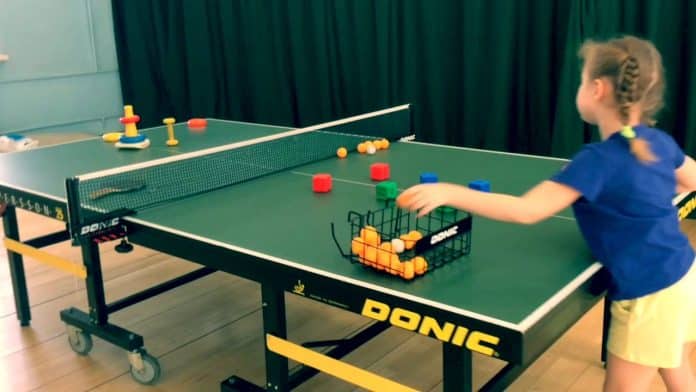
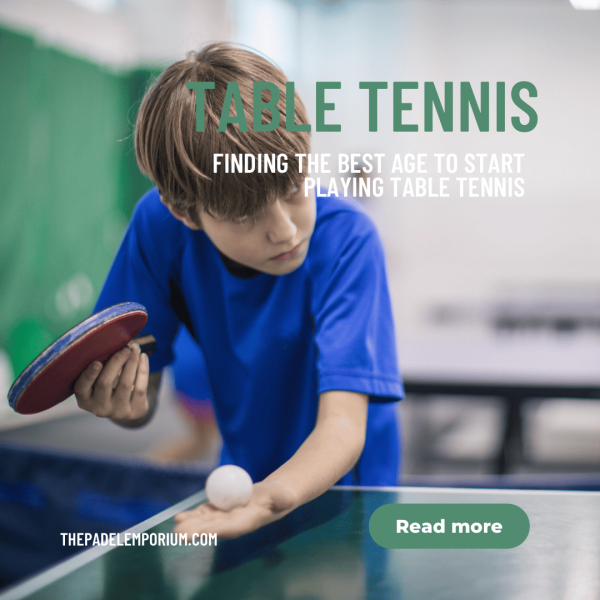
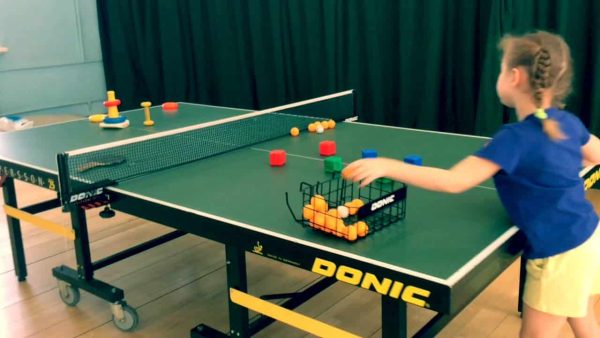
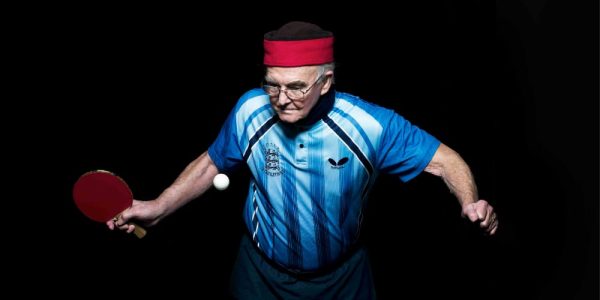
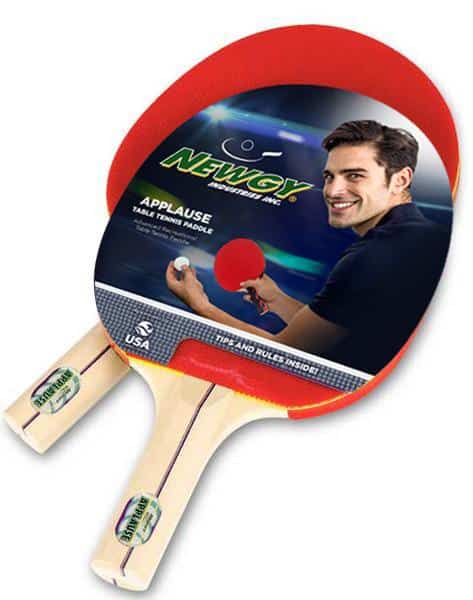
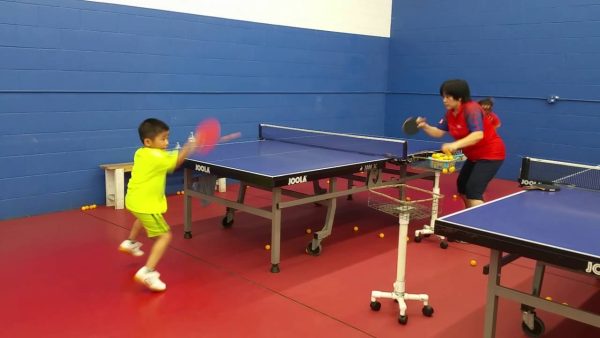




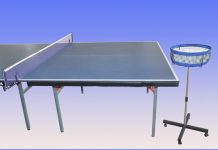















![Best Outdoor Dartboards [Reviews and Buying Guide 2024] Best Outdoor Dartboards](https://gamersets.com/wp-content/uploads/2022/12/Best-Outdoor-Dartboards-100x70.jpg)

![Best Mini Air Hockey Table [Reviews & Buying Guide 2024] Best mini air hockey table](https://gamersets.com/wp-content/uploads/2022/10/Best-mini-air-hockey-table-100x70.jpg)







